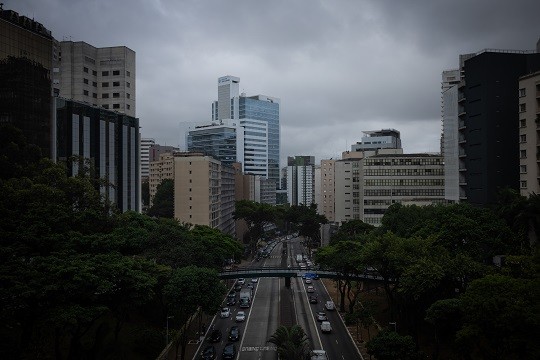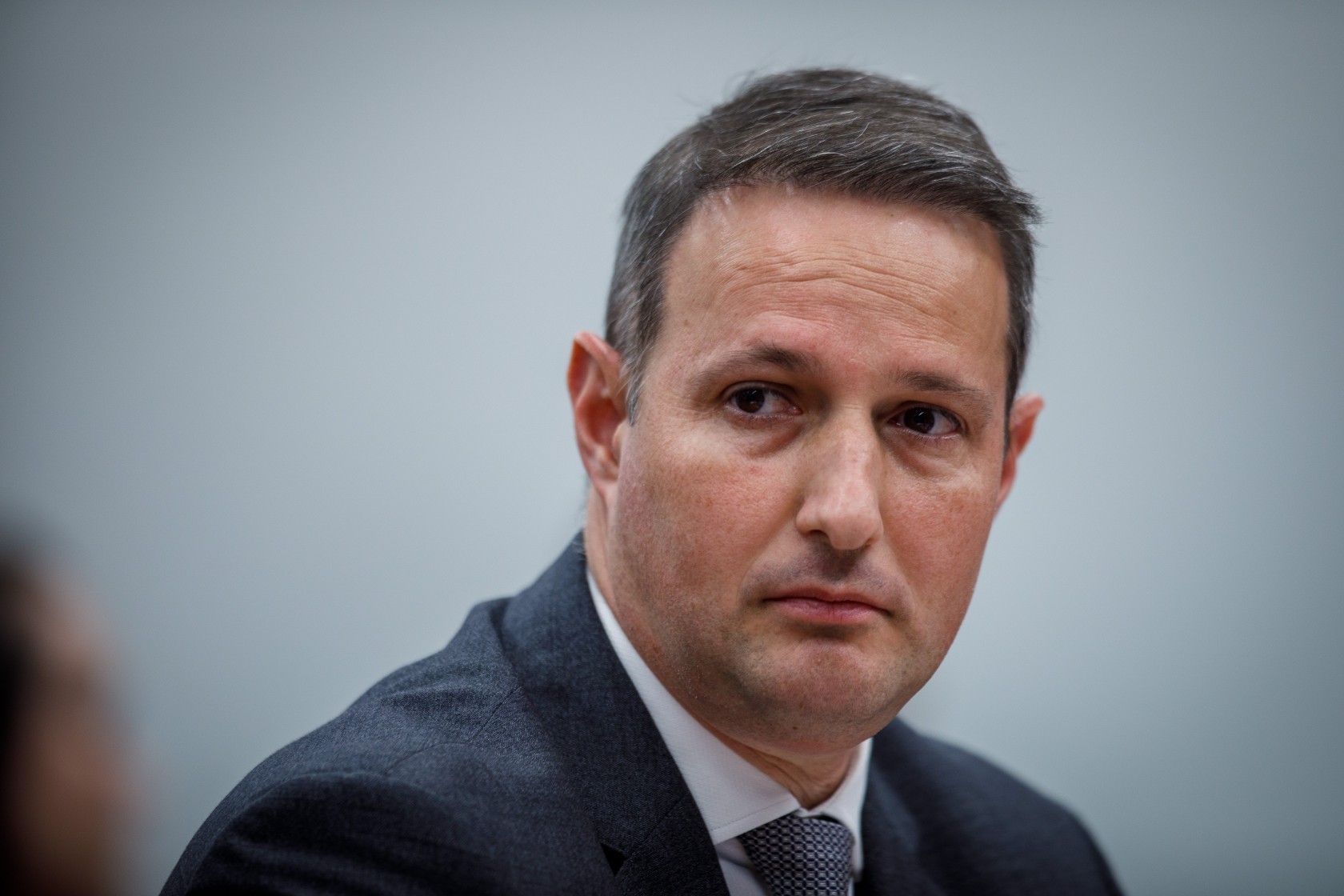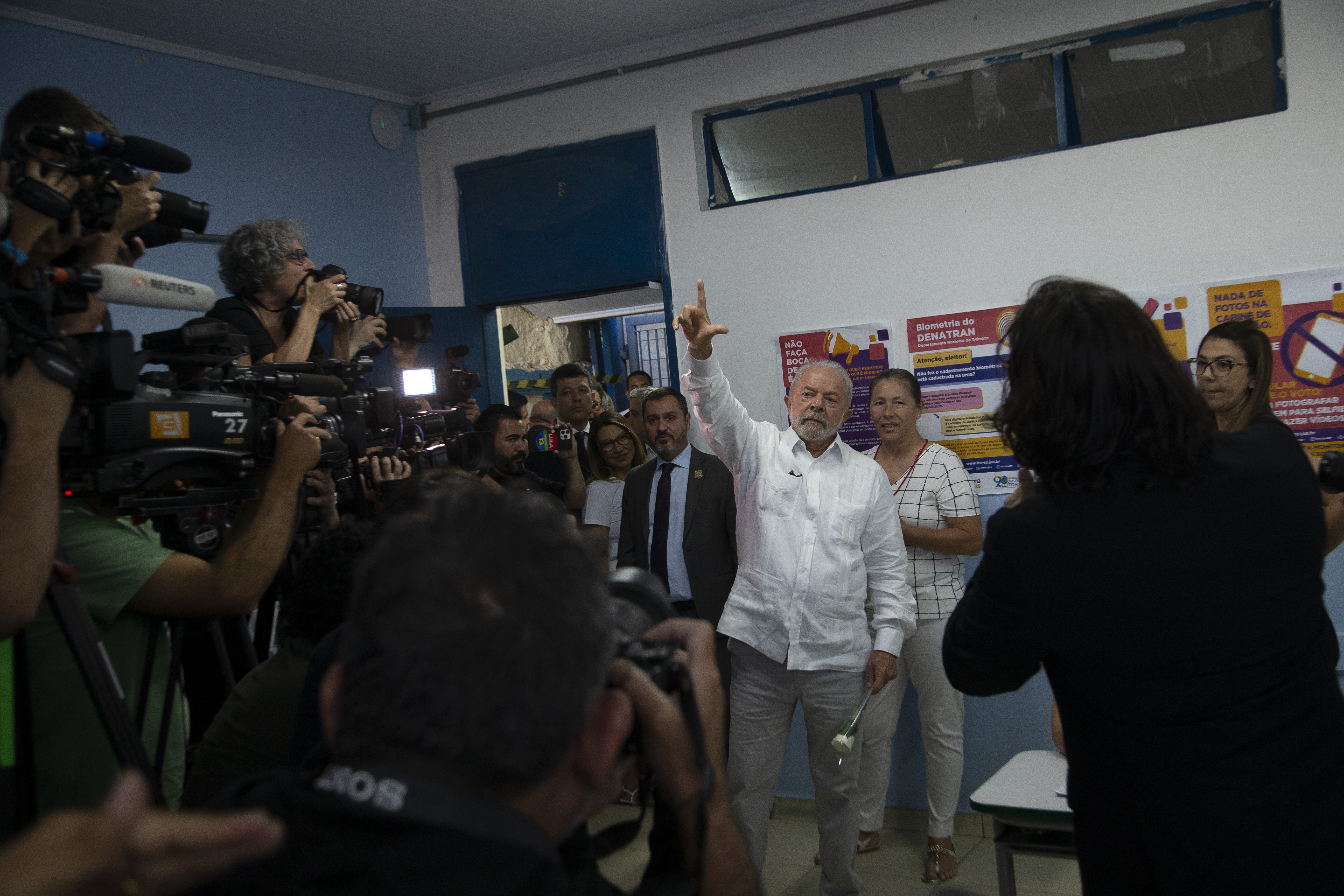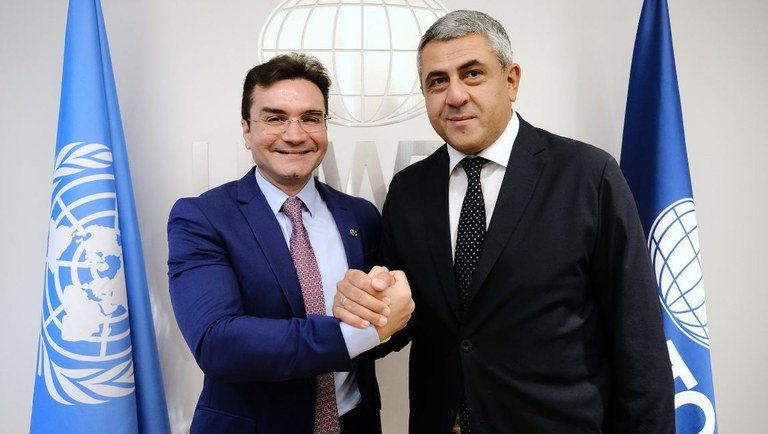Lula and Biden to announce clean energy partnership, defying Trump
Trump's first administration (2017-2021) sidelined energy transition, and the issue lost momentum after his electoral victory The bilateral meeting between Brazilian President Luiz Inácio Lula da Silva and U.S. President Joe Biden on the 19th will unveil a significant joint initiative on energy transition, a top priority for both leaders, according to official sources confirmed by GLOBO. Brazil's message is clear, official sources noted: "Regardless of the outcome" of the recent U.S. elections, which paved the way for Republican Donald Trump's return to the White House on January 20, "the Lula administration will uphold the agenda it's been building with the U.S." G20 in Rio: See how traffic and commerce will be during the mega-holiday in the capital U20: 'The poor have a right to beauty too,' says Paris mayor on resistance to public housing Trump neglected the energy transition during his first term (2017-2021), and the topic lost steam following his election, but despite the evident disappointment his victory caused within the Brazilian government, the Presidential Palace and the Ministry of Foreign Affairs have kept their plans for the bilateral meeting between the two heads of state intact. The agreement will be similar to the Partnership for Workers' Rights announced by the two presidents in September 2023, which will also be part of the agenda of topics to be discussed by Lula and Biden in Rio. The energy transition partnership began being developed in early 2024, with the intention of starting implementation in 2025. Combating climate change is a key topic in the shared agenda of Lula's Brazil and Biden's U.S., and it is expected to become a point of contention between the Brazilian president and Trump. Government sources admitted that "the future of the initiative is uncertain, but it will be announced." One goal is to change the energy matrix of both countries and promote renewable alternatives. Teams from both governments will begin working on an action plan that opposes Trump's energy vision. "We will advocate for clean energies, discuss biofuels, green hydrogen, electric cars," commented one of the consulted sources. This vision is far from the American president-elect, a proponent of fossil fuels and considered a climate change denier by environmentalists. Before arriving in Rio, Biden will visit Manaus on Sunday to see the Amazon Rainforest "to speak with local leaders, indigenous people, and others working to preserve and protect this critical ecosystem," the U.S. Embassy reported. Like the partnership with Lula, this visit will clearly signal that the Democratic government's climate agenda will be upheld until its last day in office. The Biden administration has expressed concerns about the future of climate change policies starting in January. According to the New York Times, "Biden administration aides are racing to award hundreds of millions of dollars in grants and finalize environmental regulations in an effort to secure the Democrat's climate agenda" before Trump returns. This information was confirmed to the newspaper by John Podesta, Biden's senior advisor on clean energy. In the same article, Podesta, one of the top U.S. representatives at COP 29 in Azerbaijan, stated that during the event, he would seek to reassure allies about the future of energy transition policies, a central point of the initiative to be announced by Lula and Biden in Rio, during the G20 leaders summit. "There is no doubt that having someone leading the federal government who thinks climate change is a hoax is a roadblock to accelerating action," Podesta told the New York Times. He added, "This is not the end of our fight for a cleaner and safer planet." According to a report by Johns Hopkins University and published by The Guardian, Trump's threat to revoke major climate change policies enacted by the Biden administration could result in the transfer of about $80 billion in investments to other countries and cost the U.S. up to $50 billion in lost exports, ceding ground to China and other emerging powers in the race to build electric cars, batteries, and solar and wind energy. For the Lula administration, announcing a clean energy initiative after a meeting with Biden is an important signal that, according to official sources, "reaffirms that Brazil's priorities are non-negotiable." The Brazilian government, sources emphasized, "is willing to discuss the partnership with the future Trump administration, including making adjustments. But we also know that the initiative might simply never materialize." The final details of the agreement are being negotiated. The idea is to release a joint declaration signed by both presidents, presenting the initiative. So far, representatives from the ministries of Environment, Agriculture, and Finance, among others, have been involved in the discussions. The scale of financing, sources stated, "is crucial for climate initiatives to advance." Biden and Lula will also disc
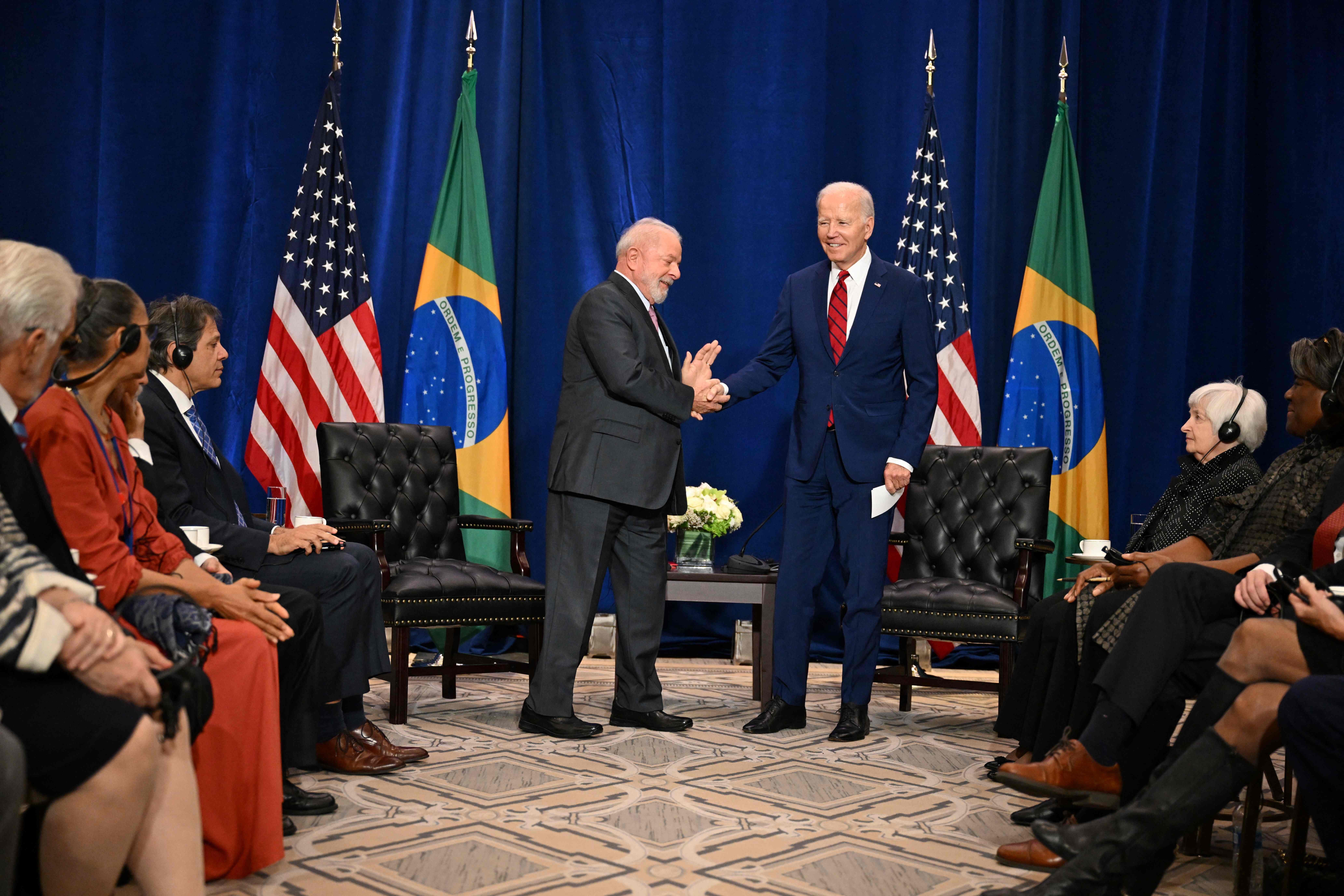

Trump's first administration (2017-2021) sidelined energy transition, and the issue lost momentum after his electoral victory The bilateral meeting between Brazilian President Luiz Inácio Lula da Silva and U.S. President Joe Biden on the 19th will unveil a significant joint initiative on energy transition, a top priority for both leaders, according to official sources confirmed by GLOBO. Brazil's message is clear, official sources noted: "Regardless of the outcome" of the recent U.S. elections, which paved the way for Republican Donald Trump's return to the White House on January 20, "the Lula administration will uphold the agenda it's been building with the U.S." G20 in Rio: See how traffic and commerce will be during the mega-holiday in the capital U20: 'The poor have a right to beauty too,' says Paris mayor on resistance to public housing Trump neglected the energy transition during his first term (2017-2021), and the topic lost steam following his election, but despite the evident disappointment his victory caused within the Brazilian government, the Presidential Palace and the Ministry of Foreign Affairs have kept their plans for the bilateral meeting between the two heads of state intact. The agreement will be similar to the Partnership for Workers' Rights announced by the two presidents in September 2023, which will also be part of the agenda of topics to be discussed by Lula and Biden in Rio. The energy transition partnership began being developed in early 2024, with the intention of starting implementation in 2025. Combating climate change is a key topic in the shared agenda of Lula's Brazil and Biden's U.S., and it is expected to become a point of contention between the Brazilian president and Trump. Government sources admitted that "the future of the initiative is uncertain, but it will be announced." One goal is to change the energy matrix of both countries and promote renewable alternatives. Teams from both governments will begin working on an action plan that opposes Trump's energy vision. "We will advocate for clean energies, discuss biofuels, green hydrogen, electric cars," commented one of the consulted sources. This vision is far from the American president-elect, a proponent of fossil fuels and considered a climate change denier by environmentalists. Before arriving in Rio, Biden will visit Manaus on Sunday to see the Amazon Rainforest "to speak with local leaders, indigenous people, and others working to preserve and protect this critical ecosystem," the U.S. Embassy reported. Like the partnership with Lula, this visit will clearly signal that the Democratic government's climate agenda will be upheld until its last day in office. The Biden administration has expressed concerns about the future of climate change policies starting in January. According to the New York Times, "Biden administration aides are racing to award hundreds of millions of dollars in grants and finalize environmental regulations in an effort to secure the Democrat's climate agenda" before Trump returns. This information was confirmed to the newspaper by John Podesta, Biden's senior advisor on clean energy. In the same article, Podesta, one of the top U.S. representatives at COP 29 in Azerbaijan, stated that during the event, he would seek to reassure allies about the future of energy transition policies, a central point of the initiative to be announced by Lula and Biden in Rio, during the G20 leaders summit. "There is no doubt that having someone leading the federal government who thinks climate change is a hoax is a roadblock to accelerating action," Podesta told the New York Times. He added, "This is not the end of our fight for a cleaner and safer planet." According to a report by Johns Hopkins University and published by The Guardian, Trump's threat to revoke major climate change policies enacted by the Biden administration could result in the transfer of about $80 billion in investments to other countries and cost the U.S. up to $50 billion in lost exports, ceding ground to China and other emerging powers in the race to build electric cars, batteries, and solar and wind energy. For the Lula administration, announcing a clean energy initiative after a meeting with Biden is an important signal that, according to official sources, "reaffirms that Brazil's priorities are non-negotiable." The Brazilian government, sources emphasized, "is willing to discuss the partnership with the future Trump administration, including making adjustments. But we also know that the initiative might simply never materialize." The final details of the agreement are being negotiated. The idea is to release a joint declaration signed by both presidents, presenting the initiative. So far, representatives from the ministries of Environment, Agriculture, and Finance, among others, have been involved in the discussions. The scale of financing, sources stated, "is crucial for climate initiatives to advance." Biden and Lula will also discuss global geopolitical conflicts and progress in the labor partnership, among other topics. The aim of both governments is to incorporate new countries into the understanding launched in 2023, which seeks to advocate for a "justice and sustainability agenda in the global economy and ensure that economic growth leaves no one behind," according to the statement released at the time.
Qual é a sua reação?









